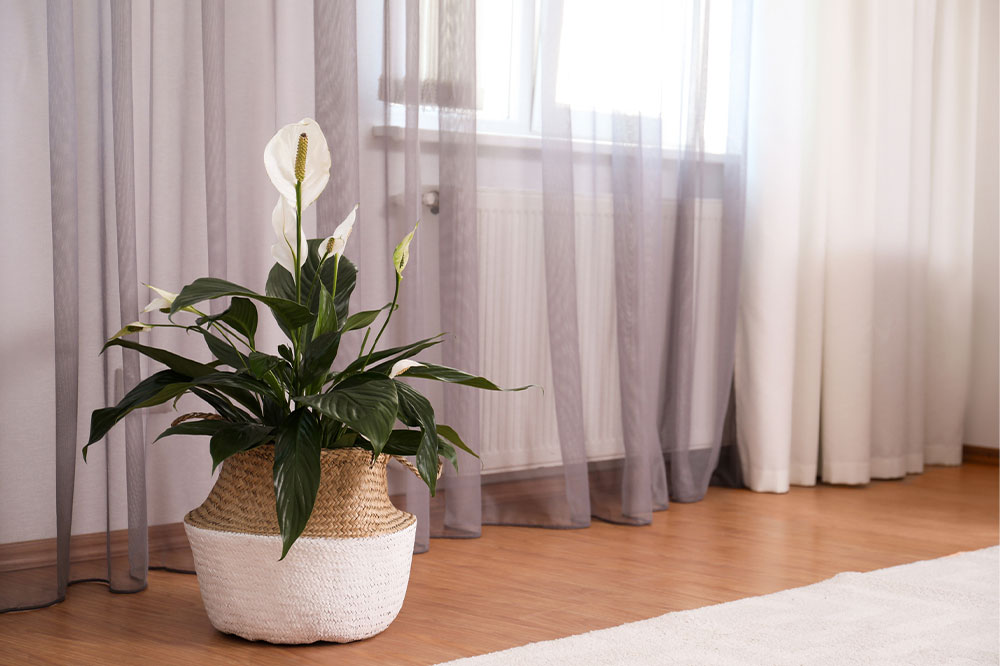7 plants that are toxic to cats

Cats are smart animals who are typically mindful of what they eat. But sometimes, seeds or pollen of a toxic plant get stuck in their fur or on their paws, and cats may ingest toxic substances while grooming themselves. To avoid this and keep your cat safe, all pet parents should take some time to learn the names of plants that are toxic to their health. Some of these plants are mentioned below.
Peace lily (spathiphyllum)
All its parts, including the leaves, roots, petals, and pollen, should be kept away from cats. If cats ingest peace lilies, they could get acute kidney failure. Other symptoms of poisoning would include vomiting, irritation of the mouth and GI tract, excessive drooling, and in rare cases, difficulty swallowing or breathing.
Sago palm (cycas revoluta)
Sago palm contains a toxic substance called cycasin, which, when consumed, may result in liver damage in cats. It could also cause vomiting, diarrhea, and black, tarry-looking stool. It could also lead to bruising, excessive thirst, lethargy, and in rare cases, death.
Eucalyptus (myrtaceae)
Eucalyptus can cause complications like drooling, vomiting, decreased appetite, and diarrhea in cats. The toxicity level of this plant is low, and the symptoms often disappear within 24 hours. But higher concentrations can cause serious problems.
Dieffenbachia
Dieffenbachia may be known by its various other names, including dumb cane or tropic snow. It is a part of a genus of tropical flowering plants in the Araceae family. Dieffenbachia contains insoluble calcium oxalate crystals, which can cause a burning sensation in the mouth if consumed by cats. It can also lead to excessive drooling, vomiting, and difficulty swallowing.
Kalanchoe
All parts of this plant are toxic to cats, as it contains bufadienolides. This can cause gastrointestinal issues like drooling, vomiting, and diarrhea. If cats eat this plant, they can experience heart arrhythmias and seizures.
Oleander
This outdoor shrub contains cardiac glycoside toxins that are harmful to the heart muscle. Oleander can also cause drooling, vomiting, diarrhea, seizures, and heart abnormalities, so it is essential to keep your cats away from this plant.
Jade plants (crassula)
Jade plants, also known as money plants or dollar plants, are easy to grow as they require little maintenance and are believed to bring luck and fortune. But not for your cat. Signs of poisoning include vomiting, lethargy, depression, and incoordination.






